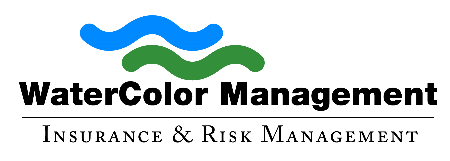
You may use others to do work or provide services on your behalf, as an independent or subcontractor. This is a very common practice in testing labs, for example, though the ways in which testing labs utilize contractors can vary. Some testing labs are huge national organizations, and others may be very small. The former tend to have contracts and agreements they require their contractors to sign and adhere to. The latter often do not.
Agreement Conditions
When asked to sign an agreement, review it with counsel or at the very least, determine if there is a hold harmless or indemnification agreement in it that makes you responsible for their errors that cause injury or loss to another. This would mean that you take responsibility (financially) for the mistakes they make while doing work for you.
Try and negotiate the wording. You may or may not have any success. If they decline to offer relief, you may want to consider using another facility that is more willing to be flexible on liability.
Smaller labs may not have such onerous and dangerous agreements. For those labs that are a straight hands off service provider you may want to consider including the following wording in the agreement. The first is more standard and the second is much better to safeguard your interests. The clauses are:
- The subcontractor shall hold harmless and indemnify (ABC Water Treater) for any damages arising from the work or product of the subcontractor.
Or
- The subcontractor shall assume all liabilities and defense of (ABC Water Treater) for any allegations of negligence or damages arising from the work or product of the subcontractor.
The first clause is less desirable than the second, because the term “indemnify” really means that the beneficiary of the indemnification is made whole after they have paid or suffered damages in the first instance. Only after suffering the damages will indemnification take place.
The second clause creates an immediate obligation on behalf of the subcontractor to take the defense of any court action and handle the damages as they arise. So, you don’t have to suffer damages first and then wait for indemnification.
Another Option
You may have a stronger business relationship with some subcontractors or laboratories. If that is the case, the following optional approach may be used. Subject to counsel’s approval, this could be some wording to use:
“Both parties agree to hold each other harmless and provide a mutual waiver of subrogation arising out of or resulting from services performed. This mutual hold harmless and waiver of subrogation includes but is not limited to the following; costs of defense, settlements imposed by law, statute, judgments, awards, trials, depositions, discovery, out of court settlements and / or similarly related agreements, arbitration awards, mediation, Alternative Dispute Resolution (ADR), costs, torts, contract claims or suits for damages, Island Domicile, U.S. Federal, state and / or local law costs, administrative rulings, regulations, damages, punitive damages, treble damages, exemplary damages and / or RICO.”
Doing this prevents your insurance company from suing your subcontractor under subrogation and vice versa. If they do good work, you do not want your insurance company to go after them or their insurance company to come after you. It also encourages cooperation among all the parties when or if you are sued by someone and they are also named in the lawsuit.
About Watercolor Management
WaterColor Management has insured the water industry for over 30 years. Our policies include unlimited defense cost coverage in the event of a lawsuit against you. Call us at (256) 260-0412 or email info@watercolormanagement.com for a quick quote for your Water Business Professional, Products/Completed operations, Pollution and General Liability Insurance.




